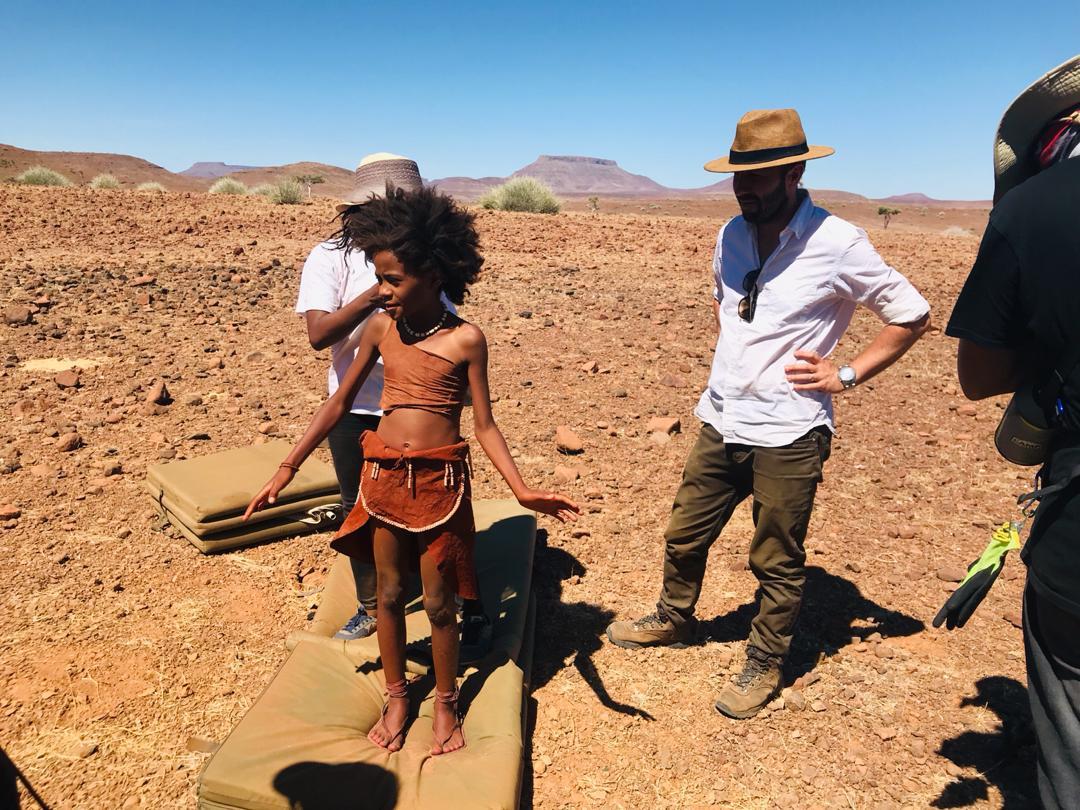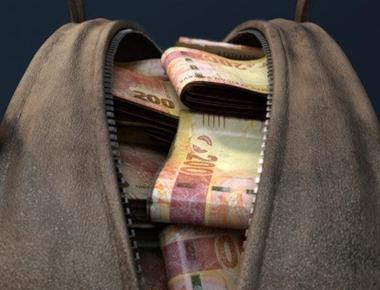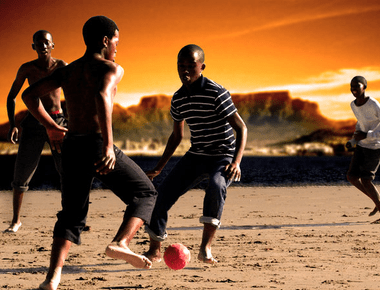
Baxu and the Giants & The Road Less Traveled

Baxu & The Giants is a 2019 Namibian Multilingual short film Co-written and Directed by Florian Schott. The film tells the story of Baxu, a nine year old strong-willed girl, in touch with nature, who grows increasingly concerned about the Rhino Poaching that is starting to affect her village and her impoverished family. Throughout the film Baxu is constantly having dreams about herself alone in the desert and an unseen voice telling her of an incoming danger, little does she know that this incoming danger will be coming from her very own home.
Choice or its lack thereof is a pretty big theme in Baxu & the Giants and one that I think stood out for me. After finding out that her brother was making money through helping Rhino poachers, Baxu is dropped home by an elder Damara man who utters this line to her,
“The road less traveled may be hard, but it will get you where you need to go.”
This was during one of the most pivotal scenes for the young character and this is where everything clicked for me.

“The road less travelled” is a famous line from Robert Frost’s famous Poem “The Road Not Taken”. In the Poem, Frost speaks about having to choose between two roads and deciding to choose the road that is less traveled. The perceived idea from the poem, although arguably misinterpreted, is the road less travelled might be a lot more bleak and uncomfortable but it is filled with greater rewards than the easier, more comfortable road. This is the conflict that the characters in Baxu and The Giants go through.
At the beginning of the film we are introduced to a nine year old Baxu, who despite having a pretty close relationship with her older brother, Khata, (they even have a sweet handshake) and her grandmother, we also see that her family is impoverished. Khata works hard to provide for his family but his job pays pennies, and to make things worse, their grandmother is a drunk, so part of the money he receives also has to go to her vices.

However, even with all of these struggles, Baxu, who has already been hardened by this life, is content with what she has. Life is hard but at least she has her family. Her brother, Khata on the other hand, although also seeming to be content at the beginning, gets an opportunity to make real money and support his family, however, this money comes from the poaching of Rhinos.
Khata could have rejected the idea of making money illegally and continued making money the moral but harder way. Instead he chose the easier path, and sure enough he started to make a lot more money for his family.
It is similar to their grandmother who at the beginning of the film, one can easily judge her for being a drunk and making her young grandchildren take care of her. However, later on in the film you realise the trauma she has been through and why she chooses to cope this way. It will be better for her and her family to face her grief, but instead she chooses to bury it with alcohol because that is a much easier choice.

These characters choose this path because they feel like life has given them no other choice, it can even be argued that this is true and the film does a good job not to judge them for this. However, with Baxu we learn that sometimes the harder way can be more worthwhile. After finding out what her brother has been up to, Baxu has an argument with Khata, who asks her if she’d rather they continue to struggle to live by or they make some real money despite where it comes from. But Baxu still stands by the ideal that even though life was hard before, at least they still had their morality. She’d rather stick to the harder road if choosing the other path means destroying the earth.
However, Baxu doesn’t always know which road to take, when she faces the challenge between reporting her brother to the officials or letting him be. For the first time in the film we see this 9 year old strong-willed child struggle with what path to take and instead her brother makes that choice for her. Khata decides to take accountability for what he has done and reports himself to the officials finally choosing the road without the quicker reward.

Baxu & The Giants is a pretty wholesome film that is carried incredibly well by a young and very talented Camilla Jo-Ann Daries, the film touches on the quite sensitive and tense subject of Rhino poaching that is quite rapid in Namibia. However, the film does not necessarily villanise the poachers, instead it makes us understand what led these people to make these choices. The film does not only work well as an awareness for anti-poaching, in my opinion, the film does a good job at telling us that even when life might be incredibly hard, it is always better to keep your moral compass pointing you the right way. Sometimes the reward you find at the end of the tunnel might be way more worthwhile.
Baxu & The Giants, at the time of this writing, is available on Netflix.
Related Posts






Quick Links
Legal Stuff

